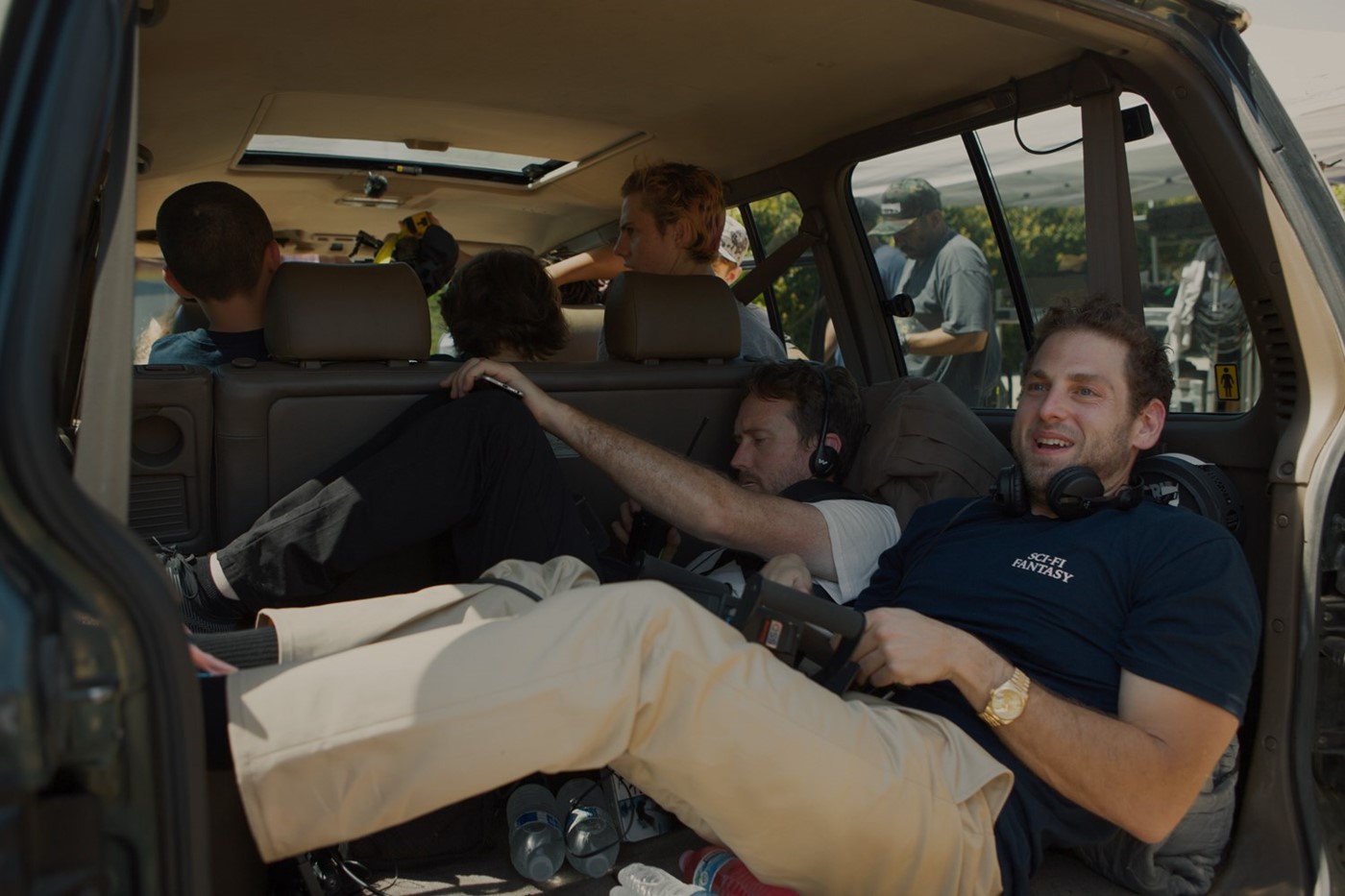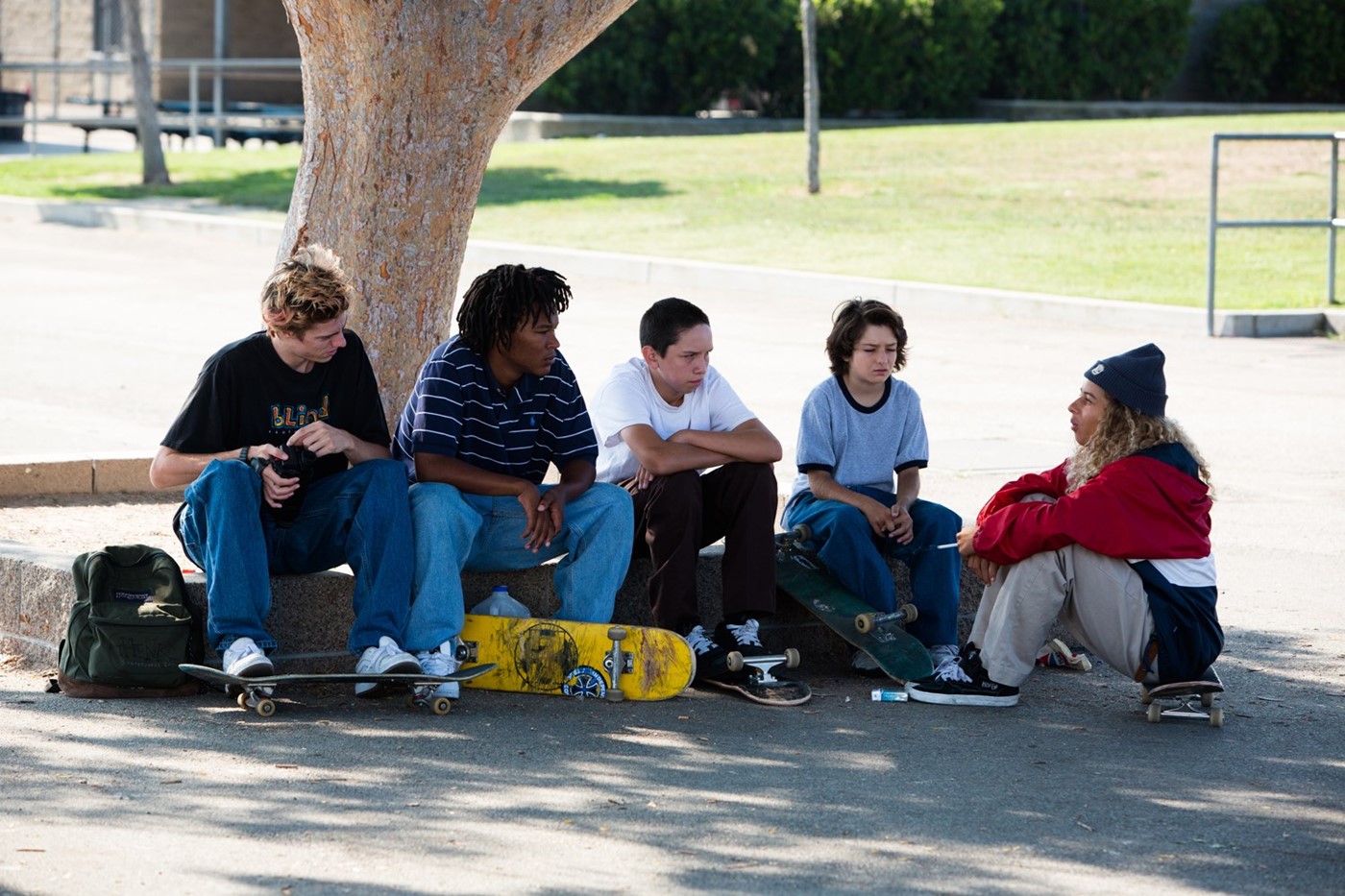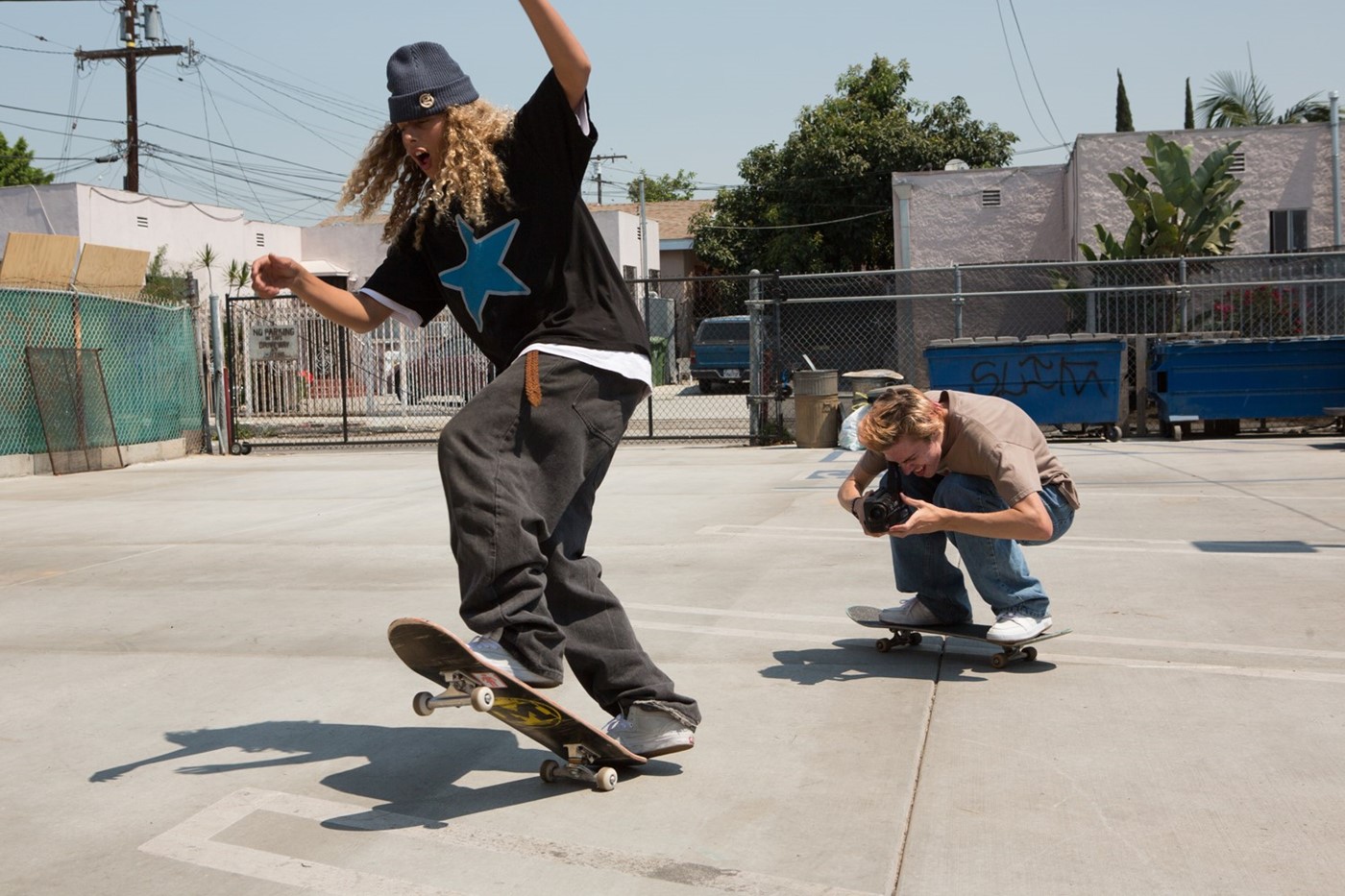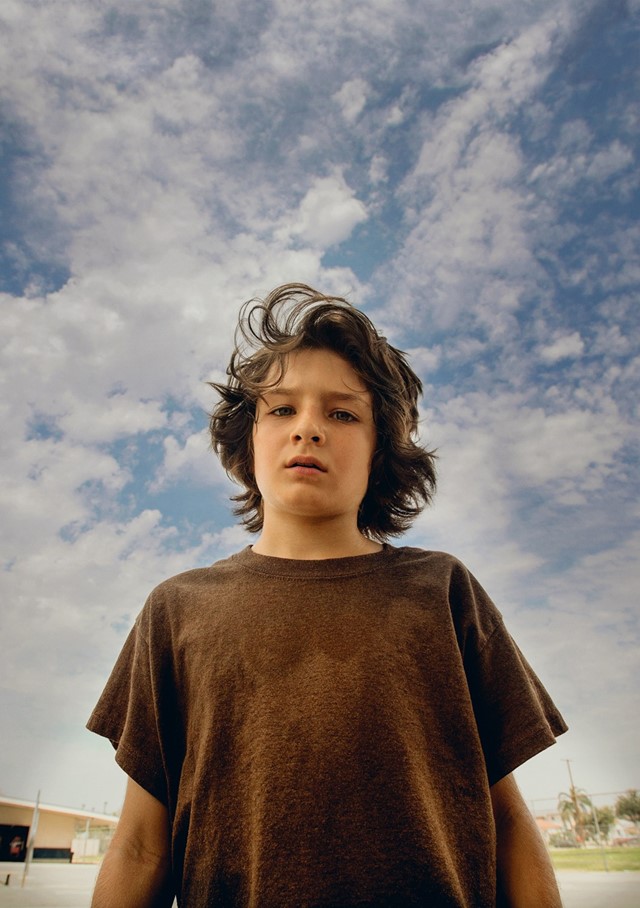Jonah Hill on Mid90s: “Being a Filmmaker Is All I Ever Wanted to Be”
- TextHynam Kendall
With his directorial debut Mid90s, out this week, the formidable actor looks set to become an equally formidable filmmaker
Mid90s, the four-years-in-the-making labour of love of Jonah Hill, and duly his debut as filmmaker, plays like a long lost classic from one of the masters of the ‘arthouse everyday’ such as Larry Clark, or perhaps even the early work of Hill’s good friend Harmony Korine. A coming-of-age story, the film follows protagonist Stevie as he navigates the confusing interim between boyhood and manhood, all the time set against a backdrop of 90s skate culture meticulously recreated from Hill’s own youth (though this is by no means a self-portrait). Prior to its UK release on April 12, Hill talks Another Man through the diligent planning that made Mid90s a sincere tale that never sanitises the male experience.
Was directing a natural progression for you? Were you always a storyteller?
I hold the position of ‘filmmaker’ in such high regard, and really since I was a little kid it’s all I ever wanted to be. So yes. But I didn’t do it earlier in my career because it wasn’t the right time yet, I didn’t want it to be that classic: ‘Hey, this actor is trying to direct a movie!’ I just had too much respect for the medium to go for it before it was my time. This is what I want my life to be, so with this film, my debut, I had to be able to set the bar tonally for people to know the kind of movies I’m going to make as a filmmaker.

Mid90s is evoking a period, as the title suggests. When making a period movie, how do you ensure that it’s sincere and not just fetishising it?
Of course! That’s something I put so much thought into. Skateboarding, hip hop, period films – they’re all often overly-fetishised. I think stripped down is the way to overcome it. Harmony Korine is somebody who helped me – he’s a friend of mine – and he always used the term ‘base’ when discussing the project. It was about this movie being the story with nothing on it. The acting, production design, photography: it was all as base level as we could get it. This movie would fall apart completely if it strayed away from real life.
Which other filmmakers – both figuratively and literally – helped you create Mid90s?
I’m very fortunate that my acting career has allowed me friendships and mentorships with some filmmakers that I really love, Harmony is one of them, and then there’s Spike Jonze, Gus Van Sant, Bennett Miller. They all offered advice and inspired me in different ways. Harmony, for example, read the script early on and gave his thoughts.

The music in Mid90s is probably the ultimate 90s soundtrack; it felt often that you were as influenced by music as you were cinema.
In my opinion, music in film has as big a role as the actors do. I grew up in the 90s so I’m influenced by the great auteur music video directors as much as I am by film directors. On MTV I would watch Chris Cunningham and David Fincher and Michel Gondry, the great filmmakers of our time. I also grew up on skate videos, which are pieces of art with music set to them, so music for me has always been an important part of a story.
Skate culture in movies never really feels authentic and is more often than not almost the butt of the joke. How did you manage to portray the culture so genuinely?
Now, I love skateboarding and grew up within the culture, but it’s not about being good at the sport. You could have skated every day of your life and still make a terrible film about skateboarding. Like, Michael Jordan is not going to make the great basketball film just because he’s a great player. It’s Spike Lee who’s going to make the great basketball movie, because he’s a filmmaker who grew up playing basketball. He has both those necessary qualities. And he did make that movie: He Got Game. It’s about being obsessed so that you have the respect needed for the sport, but also having the skills to put that respect up on film. Usually in mainstream movies the sport is not the focus for the director, even if the scene is centring around it. They usually make [the sport] the least important thing in the scene. [In Mid90s] we never treated skateboarding as any less than equal to anything else in the scene.

Casting real skateboarders feels like a high-risk move, what value has been added by this choice?
Well to me there was no other way to do it. I just wouldn’t have made the movie if the financiers wouldn’t let me do it. You can’t teach an actor how it was to grow up within a culture like skateboarding, I don’t care how good of an actor you are. OK, maybe Daniel Day Lewis. But there’s just a way that skateboarders carry themselves and view the world; I didn’t want to have the fool’s errand of teaching that.
The characters are all quite flawed; were you concerned that there wasn’t the clear, likeable protagonist an audience might expect?
I think people are so obsessed with these labels. We want people to be good guys or bad guys because it makes us feel safe if we understand them in that way. The idea continually fucks us over, categorising people, because no one can maintain that category – good or bad. What happens when someone who is quote-unquote ‘bad’ does something we admire? We cancel people and bring them down when we think someone is quote-unquote ‘good’ but exhibits the negative characteristics of being human. I think that’s problematic, and I always hope to make movies where the protagonists are never one thing.
In Mid90s, violence is prevalent to the point of almost being a character in itself. It acts as an inciting incident, progresses key themes of power and growth, and for some characters it’s even a means of communication. Was violence always important to the narrative?
I really appreciate you mentioning that, because violence is definitely a character [in Mid90s]. With young men – especially at the time I was growing up – physical violence is a language. I wanted to show the issues around the lack of emotional communication, because you don’t always see it represented. The thing is, if you can’t express yourself and you don’t know how and you’re not being allowed to, then you’re going to act out in a different language. And those languages are often ugly. But they’re human.
Mid90s hits UK screens on April 12.












